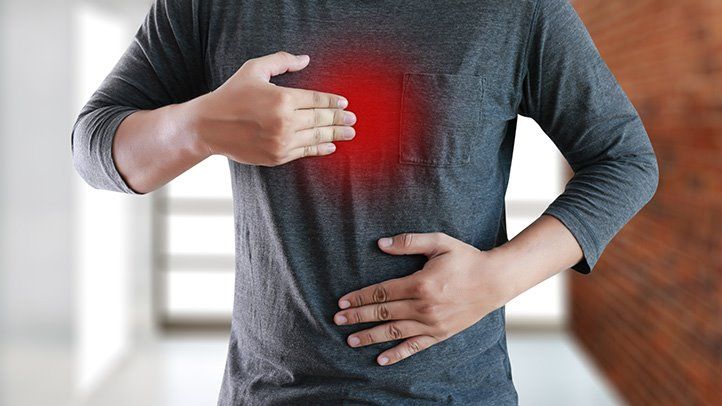GERD causes serious irritation to its sufferers on a day-to-day basis. When you begin experiencing frequent pain and symptoms from your GERD, knowing how to cut down on their severity, and how to treat your GERD becomes critical. Without the right knowledge of how to restyle your diet, habits, and lifestyle to combat your GERD, this journey can be difficult. Thankfully, we’ve set up a guide on how to do just that. With these seven tips for treating your GERD, you’ll be on the right path to effective treatment:
1. Avoid Carbonation
Carbonation is terrible for your throat, as its bubbly nature of it causes stomach acid to rise up into your throat. Going cold turkey on sodas and all other bubbly beverages can be incredibly difficult, but with the right moderation, you can significantly decrease the effects of your GERD by simply cutting down. As you decrease your intake of carbonated beverages, you’ll notice less frequent acid reflux and heartburn.
2. Maintain a Healthy Weight
Extra weight can cause a myriad of health issues. When it comes to GERD, the intense symptoms that you experience are elevated when you’re overweight. Additionally, you can develop a hiatal hernia if you’re consistently overweight while experiencing GERD, which can lead to a lengthy, difficult healing process. Other efforts on this list will become easier and more effective if you’re at a healthy weight as well.
3. Consider Changing Your Eating Schedule
The traditional three-meals-a-day schedule is not GERD-friendly in many ways. By developing a grazing-style food schedule, where you eat smaller portions, but eat more often throughout the day, the intensity of meals that are placed on your stomach is significantly decreased. If you can prevent yourself from becoming overly “full” your brain responds in a way that lessens the symptoms of GERD.
4. Never Eat to Close to Bed
Sleeping too soon after consuming a meal (or even a light snack) can cause your body to develop acid reflux symptoms. Heartburn has a much higher chance of occurring by sleeping too close to meals as well. Naptimes before bed are similarly dangerous for your GERD if you eat too soon before laying down. There’s a need to separate substantial amounts of eating and sleep by at least three hours if possible if you want to avoid negative effects on your GERD.
5. Switch Up Your Sleeping Position
Sleeping on your back is natural for many people. However, this position can often cause acid to flow from your stomach to your esophagus, which can seriously irritate your GERD. Propping the head of your bed up can be useful in preventing this from happening. Consulting your doctor about other aspects of your sleeping position and ritual can be helpful in finding the perfect sleeping position for you.
6. Workout in the Morning
Working out consistently is one of the best things you can do for your health. However, similar to eating too close to bedtime, working out too close to bedtime will boost your chances of experiencing GERD symptoms. Working out in the morning is also better for your metabolism, and can help keep you energized throughout the day. When working out at night, the extra energy boost can disrupt your sleep patterns, so finding a sleeping schedule that is consistent with your lifestyle and medical needs becomes key.
7. Avoid Smoking
Smoking, as well as excessive alcohol consumption, can cause serious irritation of the throat and stomach, which can lead to an increased chance of developing a hiatal hernia, and GERD symptoms. Kicking these habits will also significantly boost your overall mental and physical health. Dealing with addiction can be difficult, but with the right support system, you can make strides toward this incredibly important step of both boosting your health, and lessening the frequency of your GERD affecting you. Some drugs, including Zantac, have caused issues when prescribed to those with severe GERD issues, so if you’ve found yourself injured in this way, contacting the knowledgable, dedicated services of Rosenfeld Injury Lawyers can help you gain the restitution you deserve.
Take Your Life Back
GERD can cause serious disruption to your lifestyle, and day-to-day well-being. Without taking these important steps, you’ll be unable to fully combat the intensity of your GERD, and you’ll become more likely to develop a hiatal hernia. Transitioning into these new dietary and lifestyle habits can be trying, but they are well worth your time and investment, as you’ll feel better than you have in years once your GERD is under control.


























